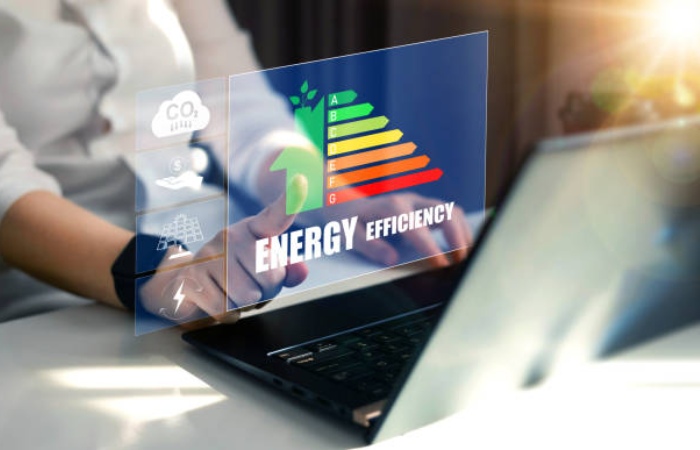Navigating the world of utility bills can be overwhelming for facility managers, entrepreneurs, small business owners, and property owners. With fluctuating prices and unexpected spikes in consumption, managing these costs is more crucial than ever. In this blog post, we will discover practical strategies to avoid service interruptions by effectively managing utility bills. You’ll learn how to optimize your utility usage, negotiate better rates, and integrate advanced technology into your operations.
Understanding the Importance of Utility Management
Utility management is not just about paying bills on time; it’s about ensuring that your operations run smoothly without unexpected disruptions. Service interruptions can lead to significant losses, affecting productivity and customer satisfaction. By mastering utility management, you can enhance operational efficiency, save money, and even contribute to sustainability efforts.
The Cost of Service Interruptions
Service interruptions can occur for various reasons, including late payments, excessive consumption, or even external issues like infrastructure failures. According to a study by the U.S. Department of Energy, electric service interruptions can cost businesses between $1,000 and $3,000 for every minute of downtime. This staggering statistic highpoints the importance of managing utility costs effectively.
The Role of Facility Managers and Business Owners
For facility managers and business owners, understanding utility management is essential. You need to be proactive in monitoring your consumption patterns and anticipating fluctuations. Implementing effective management strategies can help mitigate risks associated with service interruptions and ensure seamless operations.
Assessing Your Current Utility Expenses
Before you can implement any changes, it’s critical to assess your current utility expenses. Understanding where your money spirits is the first step toward effective management.
Tracking Consumption Patterns
One of the most effective ways to manage utility costs is to track consumption patterns over time. Look for trends in your usage data, and identify peak consumption periods. This data can provide insights into which areas of your operation consume the most resources, allowing you to develop targeted strategies for reduction.
Identifying Wasteful Practices
After tracking your consumption, the next step is to identify wasteful practices. Common culprits can include outdated equipment, inefficient processes, and poor insulation. For instance, HVAC systems that aren’t regularly maintained can lead to unnecessary energy usage. Addressing these inefficiencies can top to substantial savings on your utility bills.
Setting a Budget
Once you have a clear understanding of your utility expenses, consider setting a budget based on your historical data. This budget should account for seasonal fluctuations and any planned operational changes. Having a budget in place will help you keep your utility expenses in check and avoid surprises.
Strategies for Reducing Utility Costs
With a budget established, you can begin to implement strategies for reducing utility costs. Here are several effective methods to consider:
Invest in Energy-Efficient Equipment
One of the most impactful ways to reduce utility costs is by investing in energy-efficient equipment. While the upfront cost may seem high, energy-efficient appliances and machinery often pay for themselves over time through reduced energy consumption. Look for ENERGY STAR-rated products or other certifications that indicate efficiency.
Conduct Regular Audits
Conducting regular energy audits can help identify areas where you can improve efficiency. Many utility companies offer these services for free or at a reduced cost. An audit can pinpoint inefficiencies and recommend specific improvements, such as upgrading lighting to LED or improving insulation.
Utilize Renewable Energy Sources
Incorporating renewable energy sources into your utility mix can significantly reduce costs and improve sustainability. Whether it’s installing solar panels or participating in community solar programs, the benefits of renewable energy extend beyond just cost savings. They can also lead to tax incentives and a positive public image for your business.
A Look at ARDEM’s Comprehensive Value Bill Management Services

ARDEM’s usefulness bill management services are a strategic solution to businesses’ challenges when managing utility bills. These services not only eliminate complexity but also optimize cost management strategies. They offer a multifaceted approach to improving your company’s financial health. Below is a more detailed description of how ARDEM can help your company manage utility bills:
Efficient Data Entry:
Utility bill data entry is the foundation of accurate utility bill management. ARDEM’s data entry specialists carefully handle the utility bill data entry into your system. This precision-based approach minimizes the risk of errors and inaccuracies resulting from manual data entry. It also ensures that all data is accurately recorded. In this way, ARDEM creates a solid foundation for the entire utility bill management process.
Advanced Analysis:
Data contains valuable information that can change how you manage your utility bills. ARDEM uses state-of-the-art software to analyze usage patterns. Identify gaps and potential areas for cost reduction. Its advanced analytics tools dig deep into data and identify patterns that might otherwise go unnoticed. This analysis provides actionable insights for informed decision-making.
Cost Allocation:
Transparency and accountability are essential components of effective cost management. ARDEM’s services include accurately allocating costs to the appropriate departments or cost centres. By accurately allocating costs, ARDEM ensures that each department in your organization bears a fair share of utility costs. This transparency makes it easier to produce accurate financial reports. It also allows departments to manage resource consumption more responsibly.
Bill Verification:
Billing discrepancies can lead to overpayments and budget strains. ARDEM’s experts pay close attention to bill verification. They carefully review and compare each utility bill to historical data and contract terms. If errors or discrepancies are found, ARDEM corrects them before payments are made. This diligence will protect your company from unnecessary expenses. Thus, it helps you to control your finances more tightly.
Negotiation and Optimization:
Negotiating with utility providers requires experience and industry knowledge. The ARDEM team negotiates with utility providers for more favourable terms and rates. Through these negotiations, it will help you achieve significant cost reductions. This ensures that you get the most out of the services you receive. ARDEM’s commitment to optimization extends to exploring energy efficiency methods. This ties utility bill management with environmental responsibility.
Custom Reports:
Data is most effective when it is presented in an understandable format. ARDEM generates customized reports that provide clear information on usage trends, costs, and savings opportunities. These reports give you a complete picture of your utility consumption. Making it easy to make informed decisions. ARDEM’s custom reports ensure you have the information you need to develop effective cost management strategies.
Timely Payments:
Paying your bills on time is essential to maintaining your company’s financial health and reputation. ARDEM is responsible for ensuring that your bills are paid on time. This eliminates the risk of late payment penalties. This proactive approach to payment management builds trust in your company and streamlines the entire bill management process.
Focus on Sustainability:
Environmental responsibility is an integral aspect of modern business practices. ARDEM’s approach incorporates sustainability considerations into your utility bill management. By implementing energy efficiency practices, ARDEM helps you reduce costs. In addition, it also contributes to your company’s sustainability goals. This dual focus on financial and environmental well-being sets ARDEM apart as a utility bill processing partner.
Negotiating Better Rates with Utility Providers
In addition to implementing cost-saving strategies, negotiating better rates with your utility providers can further enhance your savings.
Research Rate Structures
Understanding the rate structures of your utility providers is essential. Many providers offer different plans based on consumption levels, peak hours, and even seasonal rates. By educating yourself about these choices, you can make informed choices that best suit your business’s needs.
Building Relationships with Providers
Establishing a good relationship with your utility providers can benefit you in negotiations. If you are a long-term customer or can demonstrate a commitment to energy efficiency, providers may be more eager to offer discounts or flexible payment plans.
Consider Group Purchasing Agreements
For small business owners, group purchasing agreements can be a powerful tool for negotiating better rates. By banding together with other businesses, you may achieve lower rates due to bulk purchasing power. This approach not only saves money but also fosters community partnerships.
Leveraging Technology for Utility Management

Technology plays a vital role in effective utility management. Utilizing modern tools can simplify the tracking and analysis of your utility consumption.
Smart Meters
Smart meters provide real-time data on your utility usage, allowing you to monitor consumption patterns continuously. This information can help you make immediate adjustments to reduce waste and avoid service interruptions.
Energy Management Software
Energy management software can help facility managers and business owners optimize their energy usage. These platforms offer analytics, reporting features, and alerts when usage exceeds predetermined thresholds, making it easier to manage your utility costs effectively.
Automated Controls
Implementing automatic controls for lighting, heating, and cooling systems can enhance efficiency. For example, smart thermostats can adjust temperatures based on occupancy, ensuring that energy isn’t wasted when spaces are unoccupied.
Encouraging a Culture of Energy Efficiency

Making a culture of energy efficiency within your organization can yield long-term benefits. Engaging employees in your utility management efforts fosters awareness and commitment.
Employee Training Programs
Training programs focused on energy efficiency can educate employees about the importance of responsible utility usage. Providing practical tips and strategies encourages them to adopt energy-saving practices both at work and home.
Incentive Programs
Consider establishing incentive programs that reward employees for energy-saving initiatives. For example, you could offer bonuses for teams that meet energy reduction goals, fostering healthy competition and active engagement.
Share Success Stories
Sharing success stories within your organization can motivate others to adopt similar practices. Highlighting instances where utility costs were reduced, or service interruptions were avoided can create a positive feedback loop.
Effectively managing utility bills is vital to maintaining smooth operations in any facility or business. By understanding your current expenses, implementing cost-saving strategies, negotiating better rates, and leveraging technology, you can avoid service interruptions while enhancing your bottom line.
Installment Loans with No Credit Check in Utah
Managing utility expenses can be challenging, especially for small businesses and individuals facing financial constraints. In some cases, seeking financial assistance through installment loans with no credit checked can be a viable option. These loans are available in Utah and offer flexibility for those who may have a less-than-perfect credit score.
Benefits of No Credit Check Installment Loans
The primary advantage of no credit check installment loans is the accessibility they provide. Traditional loans often require a thorough credit checked, which can be a barrier for those with poor credit histories. In contrast, no credit check loans focus on other factors, such as income and employment position, making them more attainable for a broader audience.
Flexible Repayment Terms
Installment loans come with fixed repayment terms, allowing borrowers to repay the loan through scheduled payments over a set period. This structure provides predictability and helps in budgeting, aligning well with the goal of managing utility expenses effectively. Businesses and individuals can plan their finances better, ensuring that they can meet their utility bills without falling into a debt cycle.
Considerations and Precautions
While installment loans through no credit check can be beneficial, it’s essential to approach them with caution. These loans often arise with higher interest rates compared to traditional financing options. It’s crucial to understand the terms and conditions thoroughly and ensure that the repayment plan is manageable within your budget.
Integrating Loans into Utility Management
For businesses, integrating installment loans into your utility management strategy can provide a buffer during periods of financial strain. This approach ensures that essential services remain uninterrupted, allowing you to focus on implementing longer-term cost-saving measures. However, it’s vital to use loans strategically and avoid over-reliance, which could lead to financial difficulties down the line.
In conclusion, installment loans with no credit check in Utah can offer a lifeline for managing utility expenses when financial resources are limited. By considering this option carefully and balancing it with other cost-effective strategies, you can maintain smooth operations and achieve financial stability.
With the right approach, you can create a culture of energy efficiency that not only saves money but also contributes to a more sustainable future. Start taking steps today to manage your utility bills effectively and explore further resources to deepen your understanding of utility management.

